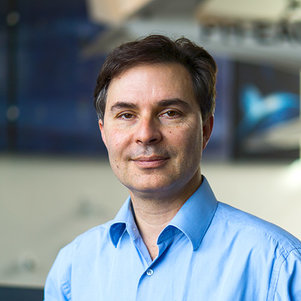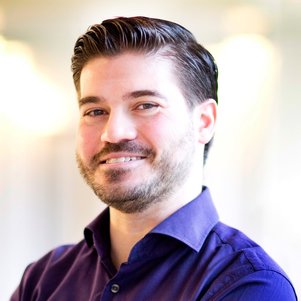TU Delft participant in EU self-healing batteries project
Researchers Sergio Turteltaub and Santiago Garcia Espallargas of the Faculty of Aerospace Engineering are taking part in the new EU project HEALING BAT, which is researching self-healing batteries, also for implementation in the aerospace sector. Turteltaub: "Self-healing lithium-sulphur batteries can play an important role in the energy transition due to their quality and longevity." Within the project, Turteltaub and Garcia Espallargas focus on creating new self-healing materials for batteries and on the development of multifunctional batteries that can store energy and carry structural loads at the same time. The project, launched in June, consists of 10 partners from six European countries. It is coordinated by TU Dortmund.
A new class of self-healing batteries based on novel material systems
Currently, lithium-ion (Li-ion) chemicals dominate the market for rechargeable batteries, but the current generation of Li-ion batteries is not expected to be able to be improved much more. Li-ion batteries alone are therefore unlikely to be sufficient for a climate-neutral society. The HEALING BAT research project focuses on developing and implementing self-healing concepts and materials in the key battery components used in conventional lithium-sulphur (Li-S) batteries. The researchers will also develop a new class of self-healing structural batteries based on Li-S.
Furthermore, the project will create a toolbox consisting of self-healing materials, relevant sensors and bespoke battery management systems, with the aim of maximising the performance of the developed Li-S battery in terms of quality, reliability and lifetime, as well as avoiding or timely healing occurring damages. The ultimate purpose of this toolbox is to control the flow of energy to and from the battery system, monitor any errors and apply corrective actions when necessary.
TU Delft
The role of TU Delft within the project is two-fold, namely on creating new self-healing materials for batteries that can heal autonomously upon damage and on the development of a new emerging type of multifunctional batteries, known as structural batteries, that can store electrochemical energy while simultaneously carrying structural loads. The collaboration will combine the expertise of the Aerospace Structures and Materials department on self-healing and composite materials with knowledge from renowned battery experts in the consortium.
HEALING BAT
The project consortium is formed by 10 partners from 6 different European countries, coordinated by TU Dortmund (DE). The other partners are technology innovation catalyst CPI (UK), Coventry University (UK), Helmholtz-Zentrum Berlin (DE), TU Delft (NL), Paul Scherrer Institute (CH), IDNEO (ES), Fundació Institut de Recerca en Energia de Catalunya (ES), FI Group (PT), SupraPolix (NL).
The project has been granted € 5,7 Million from the European Commission, and the respective UK and Swiss funding agencies. The European Union seeks to reemerge as a world leader in the field of batteries by speeding up the development of underlying critical technologies, enabling a European battery cell manufacturing industry to make use of sustainable energy, as well as implementing circular economy principles.

Dr. S.R. (Sergio) Turteltaub
Associate Professor
✉ S.R.Turteltaub@tudelft.nl

Dr. S.J. (Santiago) Garcia
Associate Professor & Acting Chairholder
✉ S.J.GarciaEspallargas@tudelft.nl